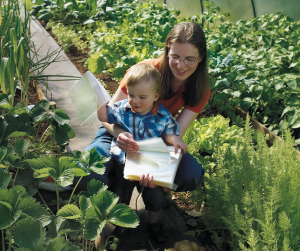As a greeting card industry pioneer on environmental matters, Sue Morrish, managing director of Glebe Cottage – The Eco-friendly Card Company is keen to highlight the disparity that currently exists between what can be easily recycled by those in the greeting card sector at an industrial level and what options are available at consumer level.

Her main issue is with the widely used Polyproplene cellobags, which Sue says “can’t (at present) be recycled by the public”. Confirmation from Recycle Now (a brand of the UK’s Waste and Resources Action Programme – WRAP), as a result of Sue making contact via Twitter, clarified her point.
While Sue accepts that the bagging of cards is now considered the norm, she also urges all involved to be aware that at present, while easily recyclable at industrial levels, ‘normal’ cellobags cannot be recycled by the general public.

While she says that whereas 20 years ago some specialist card shops would ask publishers to provide them with cards unbagged, this rarely happens anymore. “I think the way that bags keep cards clean, together with the envelopes, and enables cards to be branded, means it could be a hard sell to get all publishers to drop bags!
But you can’t get away from the fact that the card industry uses a shocking amount of single use plastic – and that this film can’t (at present) be recycled by the public.”
As Sue stressed to PG Buzz, “We, as an industry need to be careful about the messages we give about what is, and isn’t, recyclable. In theory it is possible for the film that cards’ bags are made out of to be recycled – eg the manufacturers may be able to recycle their waste – that doesn’t mean there is a way that the public can recycle it. The bag collections at supermarkets for example do not accept polyprop film, and councils do not offer it at doorstep level (as confirmed by Recycle Now).”
As a trailblazer on the environmental front, Glebe Cottage has been using compostable PLA for our card bags for over 10 years, a decision Sue and her husband and business partner Scott took “as we didn’t want to contribute to the mountain of un-recyclable plastic waste.”

Looking wider at the environmental imprint of the greeting card industry, Sue urges for greater thought to be expended into thinking “of ways of reducing ‘hidden plastics’ and non-recyclable finishes on our products, eg through the use of plastic laminates, glitter and foil. Again, although in theory technology may exist to recycle foiled cards – it doesn’t mean the public can.”
She also touches on the waste that is generated by supply chain logistics.

“I think the industry should also ask itself questions about the amount of unnecessary waste that is generated through brokerage schemes – for example in supermarkets or garden centers. What happens to those cards unsold at the end of a season or re-plan – and who is taking responsibility for dealing with that product? What happens to it? How can this waste be reduced? It may seem like an easy option for some, but what is the environmental cost?”
* This comment and others will appear in full in Progressive Greetings’ April edition, which is published at the end of this week.
























